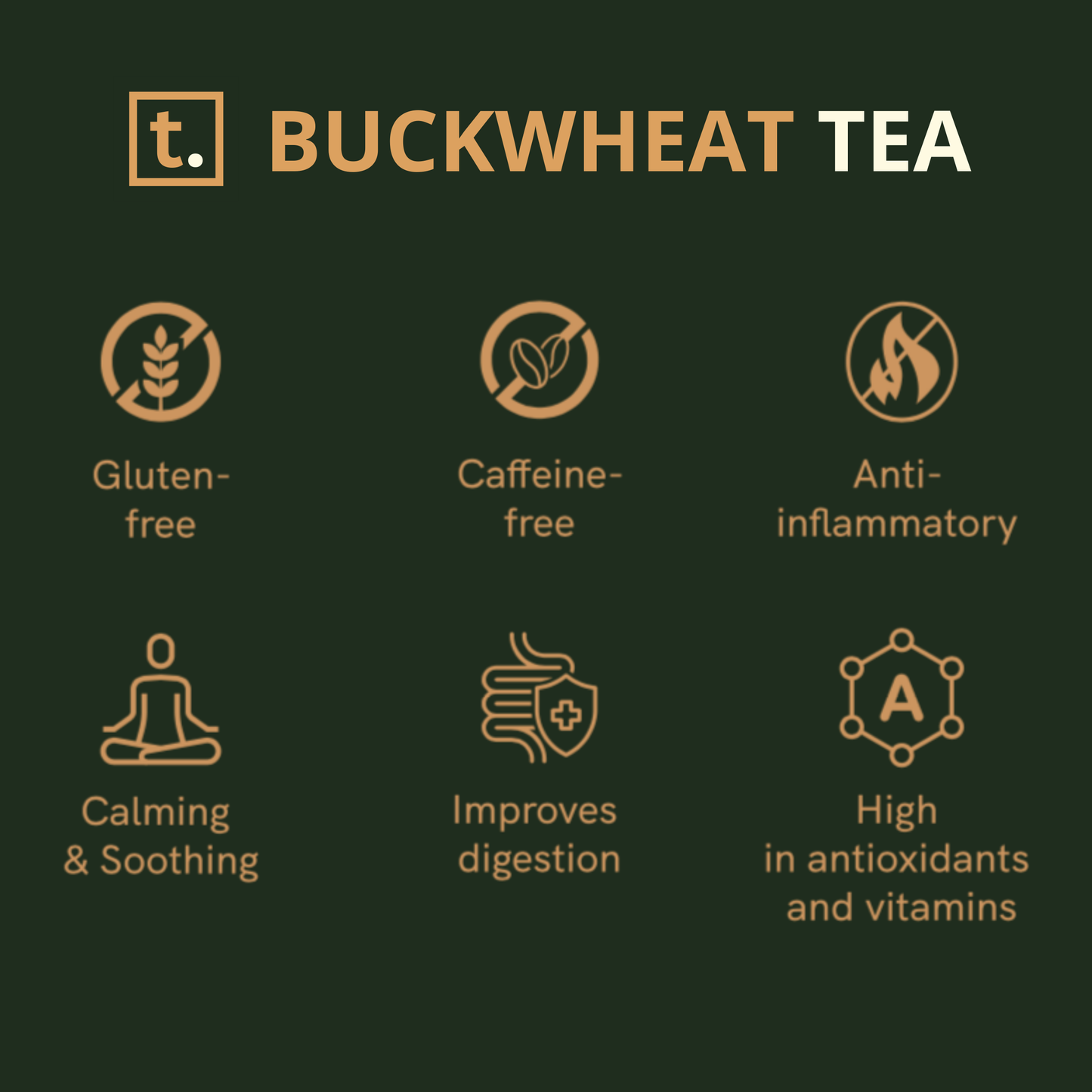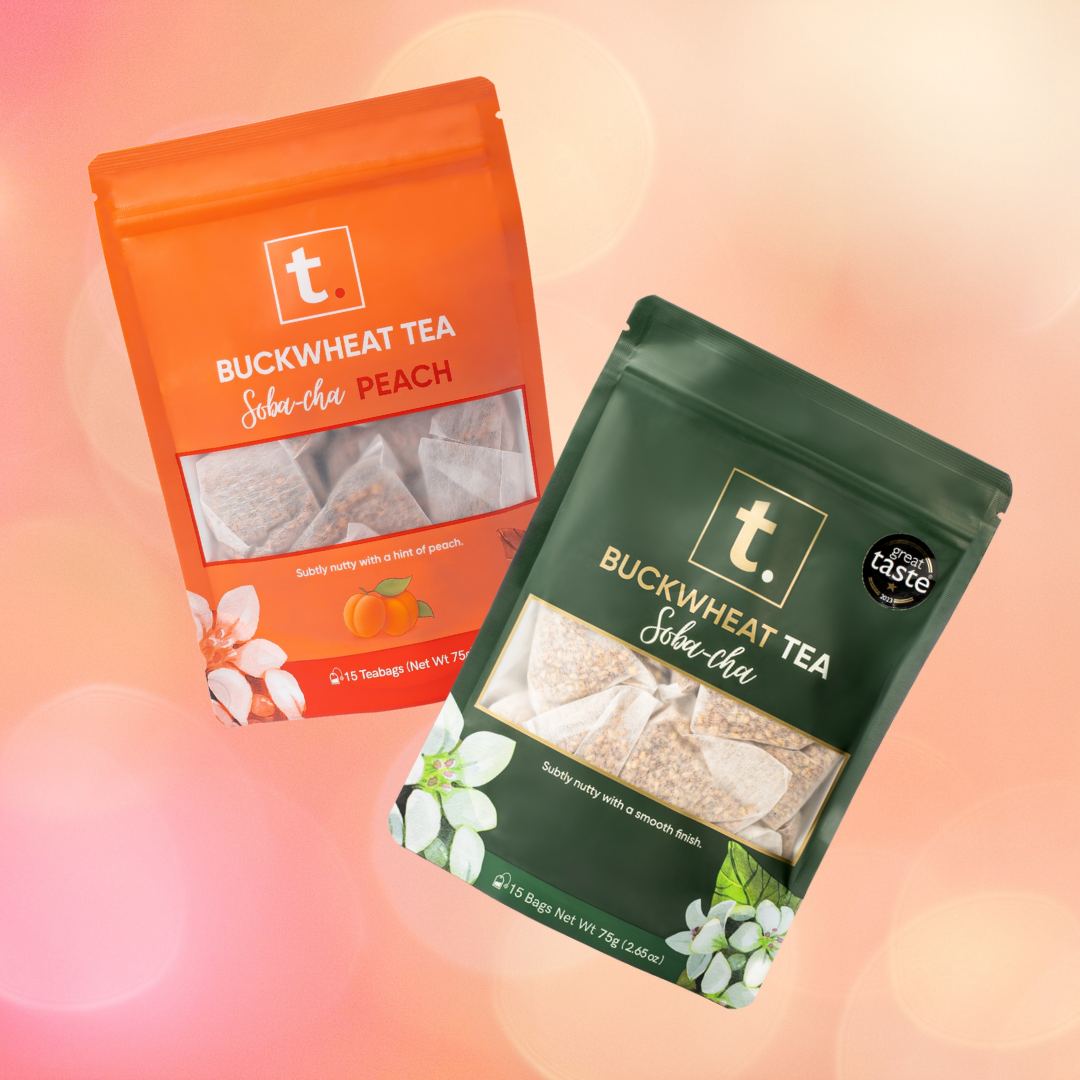
Tartary buckwheat (Fagopyrum tataricum) is a lesser-known but highly nutritious pseudocereal with a unique chemical composition that offers numerous health benefits. It contains a range of nutrients including: bioactive carbohydrates and proteins, polyphenols, phytosterols, vitamins, carotenoids, and minerals.
Compared with the widely-cultivated and more popular "common" buckwheat that we find in most supermarkets (Fagopyrum esculentum), tartary buckwheat contains higher amounts of several bioactive components including rutin, subsequently showing a higher efficiency in preventing and treating various disorders.
It’s unique composition contributes to various health benefits including:
- Anti-oxidative
- Anti-cancer
- Anti-hypertension
- Anti-diabetic
- Cholesterol-lowering
- Cognition-improving
In this article we’ll take a look at the chemical composition of tartary buckwheat, and how it can help with human health.
Chemical Composition of Tartary Buckwheat

Some of the key components of tartary buckwheat include:
1. Nutrients: Tartary buckwheat is a good source of essential nutrients such as carbohydrates, proteins, dietary fibre, and essential minerals like magnesium, potassium, and iron. It is also low in fat, making it a heart-healthy option.
2. Proteins: The protein content in tartary buckwheat is higher than in common wheat or rice. It contains all essential amino acids, making it a complete protein source, especially beneficial for vegetarians and vegans.
3. Dietary Fibre: Tartary buckwheat is rich in dietary fibre, which aids in digestion and helps maintain a feeling of fullness. This can be particularly helpful for those looking to manage or lose weight.
4. Antioxidants: The presence of various antioxidants, including rutin, quercetin, and vitamin C, in tartary buckwheat helps protect the body's cells from oxidative stress, reducing the risk of chronic diseases and supporting overall health.
5. Vitamins: It contains a range of essential vitamins, including B-vitamins (like niacin, riboflavin, and thiamine), which are vital for energy metabolism and overall health.
6. Minerals: Tartary buckwheat is a good source of minerals such as magnesium, which is essential for maintaining strong bones and a healthy heart. It also provides significant amounts of potassium, iron, and zinc.
7. Phytochemicals: Tartary buckwheat contains various phytochemicals, like quercetin and rutin, which have anti-inflammatory and cardiovascular benefits. These compounds are linked to lower blood pressure and reduced risk of heart disease.
Health Benefits of Tartary Buckwheat

1. Heart Health: The high levels of rutin in tartary buckwheat have been associated with improved cardiovascular health. Rutin may help lower blood pressure, reduce cholesterol levels, and decrease the risk of developing heart diseases.
2. Antioxidant Properties: The abundance of antioxidants in tartary buckwheat can help protect cells from damage caused by free radicals. This, in turn, may lower the risk of chronic diseases such as cancer and neurodegenerative disorders.
3. Digestive Health: The fibre content in tartary buckwheat supports healthy digestion and may help prevent constipation. It also contributes to a feeling of fullness, aiding in weight management.
4. Diabetes Management: Some studies suggest that tartary buckwheat may help regulate blood sugar levels due to its low glycemic index and the presence of compounds that improve insulin sensitivity.
5. Weight Management: The combination of fibre and protein in tartary buckwheat can promote a sense of satiety, helping with weight control and reducing overeating.
6. Bone Health: The presence of magnesium and other essential minerals in Tartary buckwheat supports strong bones and may reduce the risk of osteoporosis.
7. Anti-Inflammatory Effects: Rutin and quercetin in tartary buckwheat have anti-inflammatory properties and may be beneficial for those with inflammatory conditions such as rheumatoid arthritis, cancer, ulcerative colitis, and inflammatory bowel disease.
Tartary buckwheat is a highly nutritious and versatile food with a unique chemical composition that provides countless health benefits. It can be consumed in various forms, including buckwheat tea, flour, noodles, and as a whole grain.
Adding this supergrain to your diet can contribute to overall health and well-being, making it a valuable option for those looking to improve their nutrition and reduce the risk of chronic diseases.





















